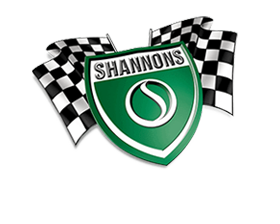c1974 Norton Commando 920cc 'Café Racer' Motorcycle (Gus Kuhn Replica)
Sold: $20,500
Specifications
| Engine | Twin cylinder, 920cc |
|---|---|
| Gearbox | 4-speed manual |
| Colour | Blue/Silver |
| Trim | Black |
Description
Regarded by many pundits as the finest British twin of the era, the Commando was introduced at Earls Court in 1967 and proved a worthy flagship for Norton-Villiers over the next decade. Well received by the press and public alike, the Commando took out Motorcycle News ?Machine of the Year? award five years in succession. Powered by an air-cooled parallel twin whose origins can be traced back to the Bert Hopwood-designed Model 7 of the late 1940s, the Commando replaced the 750 Atlas, with an entirely new frame design, in which the pre-unit engine was mounted in a canted position. Key to the Commando's success was an entirely new Isolastic frame designed by Dr Stefan Brauer, with rubber damping eliminating the vibrations that plagued so many other frames of the day. The earliest Mark 1 Commandos had a twin leading-shoe front drum brake and were sold in two models, the original 'Fastback' and 'S-type', the latter being a scrambler-style bike with high exhaust, smaller fuel tank and the front forks lacked any shrouds or gaiters. Production of the 750 Commando evolved through the late 1960s and into the early 1970s, with the final Mark V appearing in 1972, before the new 850cc was launched the following year. Right from the beginning the Commando tasted success on the track, initially with privateers running in production classes but later with the works team using more highly developed versions, including Peter Williams' victory on a John Player-sponsored Norton in the Formula 750 Isle of Man TT in 1973. Norton also released the ?Yellow Peril? production racer featuring a specially tuned engine and front disc brake, while dealers like Gus Kuhn Motors of Clapham Road, London took standard Commandos and transformed them into road racing replicas. Kuhn's outfit enjoyed great success on the track with riders like Mick Andrew, Charlie Sanby and Dave Potter, winning the British 500cc Championship, while their road bikes were proper Café Racers. Kuhn's list of special equipment included a fibreglass tank and seat, fairing, clip-ons and alloy wheel rims while engines were typically tuned with high compression pistons, 32mm Amal carbs and a special camshaft. Kuhn also offered a close-ratio set of gears and the option of a special Rod Quaife five-speed gearbox.














